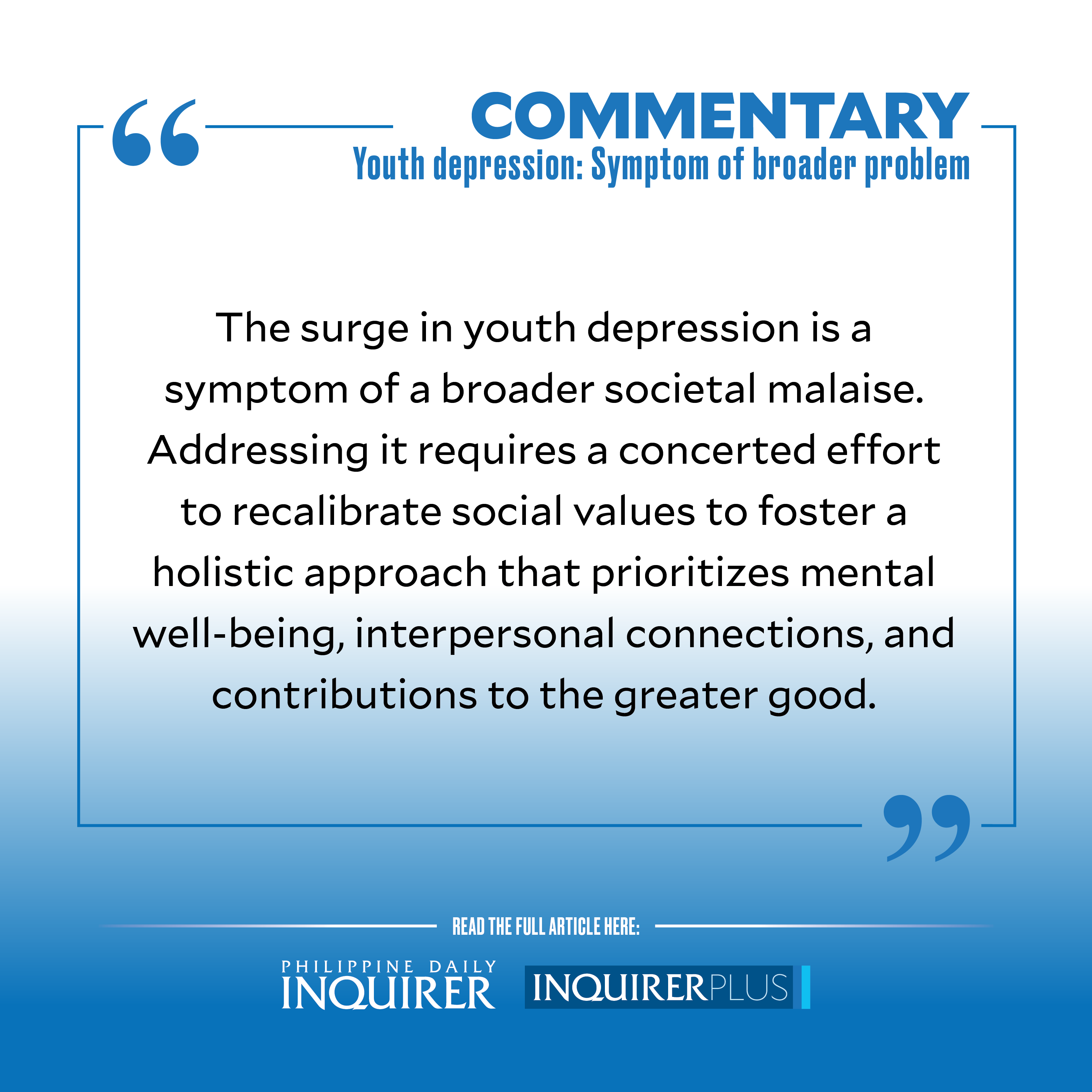Youth depression: Symptom of broader problem
Dhaka—The surge in depression among today’s youth is a complex puzzle, with pieces scattered across the intricate tapestry of our swiftly changing world.
In the vast panorama of human civilization, evolution unfolds through both material and nonmaterial culture. Material culture encompasses the tangible—from technology to consumer goods—while nonmaterial culture comprises beliefs, language, ethics, and social standards. The challenge arises when the relentless march of technological and material progress outpaces the evolution of ethical and ideological frameworks, resulting in what sociologists term “cultural lag.”
Article continues after this advertisementThis cultural lag spawns a mental dilemma. In the race for progress marked by rapid infrastructure development and the accumulation of wealth among the few, a pervasive pursuit of success ensues. Success, often defined as the acquisition of material wealth, ushers in a dichotomy. A minority races ahead, acquiring material goods, while the majority, yearning for similar goals, finds itself lagging behind. The resulting feelings of inadequacy and insignificance cast a shadow over the majority, fostering a breeding ground for mental health struggles.
The rapid success of a select few triggers self-reflection among the rest, making them question whether their ethical or ideological beliefs are hindering their progress. This internal conflict spawns a new form of alienation. Individuals feel disconnected, alone, and unable to cope with the breakneck pace of societal advancement.
In traditional settings, specific demographics—such as married women with strong religious or family bonds—historically exhibited a lower propensity for suicide. Despite being labeled as “unsuccessful” by conventional standards, their resilience stems from support structures embedded in religion, family, and cultural affiliations. The crucial factor lies in the sense of belonging within these social organisms.
Article continues after this advertisementAmidst these challenges, family involvement—rather than playing a supportive role—often exacerbates the problem. Expectations, whether real or perceived, add to the burden. Families, perhaps unknowingly, may be setting unrealistic standards and pressuring their children to excel beyond their capabilities. In urban settings, the lack of accessible sports centers and open spaces intensifies the mental health challenges faced by the youth. The culture of physical movement—once a source of enjoyment—has withered away, leaving a void detrimental to mental well-being. Economic constraints compound the issue, limiting physical activity options for those without financial means.
The weight of expectations extends beyond familial aspirations to personal ones. Young people growing up physically inactive, coupled with their own expectations and those of their parents, grapple with the realization that achieving lofty dreams is improbable.
A prevalent issue that adds to mental health challenges is the rejection of ideas that deviate from the norm. The vilification of dissenting opinions creates an environment where individuals grappling with thoughts of disconnect become targets. Online platforms, social settings, and institutions can intensify the sense of isolation. The role of the state in stifling dissent trickles down to the individual level, hindering the expression of thoughts and, coupled with the inability to achieve conventional success, instigating a profound existential crisis.
The narrow definition of success—rooted in wealth accumulation, untouchable power, overconsumption, and materialism—has stripped away the emotional aspect of being a good human being. Relationship standards have been skewed. Relationships, whether familial, friendly, professional, or romantic, should not be predicated on gains and losses. Normalizing the idea that a connection with someone should be sufficient for a healthy relationship defies prevailing norms.
To reverse this disconcerting trend, a paradigm shift in social values is imperative. Ideals that transcend material gain, emphasizing living for others, and contributing to humanity’s and the planet’s betterment, should be at the forefront. The dearth of role models showcasing alternative paths to fulfillment and success beyond material accumulation needs to be addressed.
The surge in youth depression is a symptom of a broader societal malaise. Addressing it requires a concerted effort to recalibrate social values to foster a holistic approach that prioritizes mental well-being, interpersonal connections, and contributions to the greater good. The Daily Star/Asia News Network
—————-
Samina Luthfa is associate professor at the Department of Sociology at Dhaka University.
—————-
he Philippine Daily Inquirer is a member of the Asia News Network, an alliance of 22 media titles in the region.

















